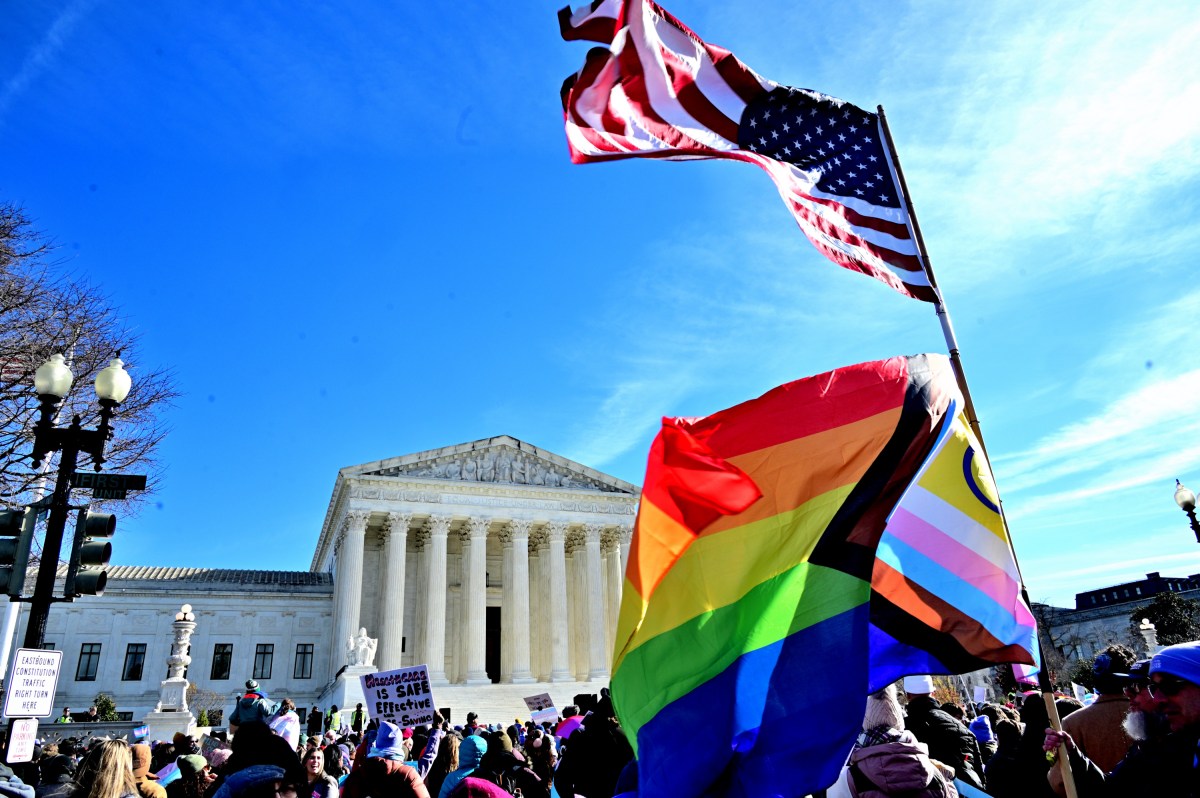Lets Review 2024 for LGBTQ, What's Changed?
 |
By Matt Tracy
Gay City News
Heading into 2025, the doors are revolving in Washington while statehouses prepare for
new legislative sessions that should yet again feature key battles for legislation relevant to trans Americans and the broader queer community. But before moving on to 2025, we will look back at some notable LGBTQ-related policy changes in the last year — first at the national level and then in New York.
NATIONWIDE
The Movement Advancement Project (MAP), which tracks LGBTQ-related legislation around the country, released a report detailing the trajectory of legislative and legal changes in the last year for queer and trans rights across different regions of the US.
Never Miss a Beat
Sign up for email updates.
Four states — Ohio, Wyong, South Carolina, and New Hampshire — enacted new bans on gender-affirming care for trans youth, and now 40% of trans youth who live in the US reside in states with such bans, according to the report published by MAP.
GOP lawmakers in statehouses also continued to push anti-trans bathroom bans, including in Alabama, Louisiana, Mississippi, Ohio, South Carolina, and Utah, bringing the total number of states to implement such laws to 14, according to the report.
New Hampshire endured a dark year of snowballing anti-trans legislation as it became the first state in the northeast to pass anti-trans statewide legislation. As noted by the report, New Hampshire enacted restrictions on gender-affirming care for trans youth, banned trans student-athletes from playing sports, and ushered in a new policy requiring teachers to give two weeks’ notice to parents regarding curriculum related to gender, sexual orientation, gender identity, and gender expression.
In total, 18 states passed some form of anti-LGBTQ laws in the last year — especially in the south — according to the report. Those states were Alabama, Arkansas, Florida, Idaho, Iowa, Louisiana, Mississippi, Missouri, Montana, New Hampshire, Ohio, Oklahoma, South Carolina, Tennessee, Texas, Utah, West Virginia, Wyoming.
Among other concerning developments, Arkansas, Missouri, and Montana enacted restrictions on gender marker changes to driver’s licenses, while Florida and Texas moved forward with outright bans on updating gender markers on driver’s licenses. West Virginia, Florida, Montana, and Texas implemented restrictions on “X” gender options on birth certificates. On the flip side, two states — Massachusetts and Illinois — eliminated requirements to provide medical documentation for those who are changing their gender markers on their birth certificates.
Notably, 92% of anti-LGBTQ bills introduced through mid-December 2024 had failed to pass during the calendar year, according to the report.
Furthermore, at least 13 states enacted pro-LGBTQ laws or policies. Those states were California, Colorado, Hawaii, Kentucky, Maine, Maryland, Massachusetts, Michigan, New Jersey, Pennsylvania, Rhode Island, Virginia, and Washington.
And in a sign of the rapidly-evolving state of play across the national landscape, 17 out of the 26 states to impose bans on gender-affirming care are being targeted by lawsuits, putting the future of at least some of those bills in question.
In another bright spot, according to MAP, Maine, Maryland, and Rhode Island implemented laws protecting patients and providers in light of efforts in other states to prosecute individuals for gender-affirming care. There are now 16 states — including New York — with such laws in place to shield doctors and patients alike.
Amid concerns about the long-term stability of marriage equality at the federal level, three states — California, Colorado, and Hawaaii — nixed constitutional amendments against same-sex marriage and Virginia enacted a law banning the denial of marriage licenses to couples on the basis of race, sex, or gender — and also forces Virignia to recognize legal marriages regardless of race, sex, or gender.
NEW YORK
Looking at New York State and New York City, arguably the top headline of the year for LGBTQ rights came on election night when voters across the state approved the New York Equal Rights Amendment, which bolstered protections for LGBTQ rights, abortion, and more.
Other laws enacted by New York State included the No Prior Authorization for HIV Treatment and Prevention law, which prevents insurers from using prior authorization for covered antiretroviral drugs to treat or prevent HIV/AIDS, and the No Co-pays for PrEP or PEP law, which bans commercial insurers from charging individuals with copays for PrEP or PEP prescriptions.
(Great News above)
Lawmakers in Albany also enacted legislation changing the name of the “Christopher Street-Sheridan Square” 1 Train station to “Christopher Street-Stonewall National Monument Station.”
Some other legislative proposals under consideration, such as the Repeal STI Discrimination Act and the Gender Identity Respect, Dignity, and Safety Act, did not get done in 2024.
New York State was home to a particularly disturbing storyline in 2024. In Nassau County, Republican Nassau County Executive Bruce Blakeman issued an executive order barring trans athletes from playing sports in accordance with their gender identity at county-run facilities. That policy drew swift outrage and legal challenges from New York State Attorney General Letitia James.
Comments